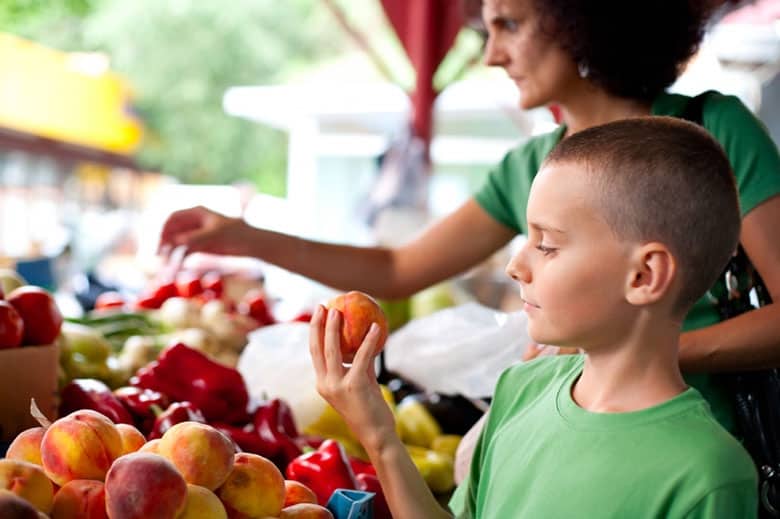
Infancy and childhood are a time of rapid growth, development and change. As nutrition professionals (and most parents) know, it is important that young children optimize their nutrition intake to promote health and vitality. This is indeed possible with a vegan diet.
Vegan diets contain only plant-based foods. Meat, poultry, dairy, eggs and honey are avoided, although not all vegans are remarkably strict and what constitutes a vegan diet varies between people. Even loosely following a vegan diet may have health benefits for vegan kids and parents.
People may choose a vegan diet for a number of reasons, and like most families, the children are fed the same foods that their primary caretakers consume. Although vegans avoid many common foods, they generally do not feel that their diet is restrictive or punishing. Rather, they focus on the enormous bounty of grains, nuts, seeds, beans, vegetables, fruits, seasonings and specialty items available (such as wheat gluten, soymilk and meat alternatives like veggie burgers). Because following a vegan diet takes knowledge and diligence, vegan kids may even surpass some of their omnivorous counterparts with regard to dietary variety and nutritional adequacy.
Let’s explore some myths of vegan diets in childhood.
Myth #1: Vegan diets are nutritionally risky.
Children raised as vegans can thrive. Avoiding animal foods — when done correctly — does not pose a risk to normal growth and development. In fact, it may be that the huge variety of health-supporting, nutrient-packed plant foods that give vegan kids a nutritional advantage. A balanced vegan diet in childhood can set the stage for a lifetime of good health.
Myth #2: Children need cow’s milk, fish or any other animal food.
Well planned vegan diets that include vitamin B12– and vitamin D-fortified foods or supplements can meet the nutritional needs of children. Dairy, animal protein or animal-derived fats are not necessary to support healthy growth and development.
Myth #3: Vegan diets can’t provide enough protein for growing children.
Most people, even vegans, get more than enough protein. The key to getting adequate protein on a vegan diet is to get enough calories from a variety of whole (or near-whole) plant foods. Children need about 10 to 15 percent of calories from protein, and plant foods provide varying amounts that can easily meet or exceed this range. Most vegetables (except for root vegetables) and beans contain more than 20 percent of calories from protein; most grains, nuts and seeds contain 10 to 17 percent; and fruits contain 1 to 10 percent. Bottom line: A variety of whole plant foods in adequate amounts will easily meet a vegan child’s protein needs. In addition, plant sources of protein are high in fiber, low in saturated and trans fat, and rich in antioxidants and minerals like iron and zinc.
Myth #4: Vegan diets are always healthier.
Some caretakers of vegan kids may falsely assume that their children are automatically ensured good health simply because they shun animal foods. There are well planned (and, more importantly, well executed) vegan diets and there are poor vegan diets, just as there are adequate and poor mixed diets. Vegan diets can and should meet all calorie and nutrient recommendations established for healthy children, but if children rely primarily on nutrient-poor choices such as refined flour foods, sweets, sweetened beverages and processed meat alternatives, at the expense of vegetables, fruits, whole grains, nuts, seeds and beans, they risk a nutrient deficiency. This is why it is so important to reserve judgment on what a client "can" and "cannot" eat on their particular vegan diet, and instead to evaluate overall food and nutrient adequacy.
